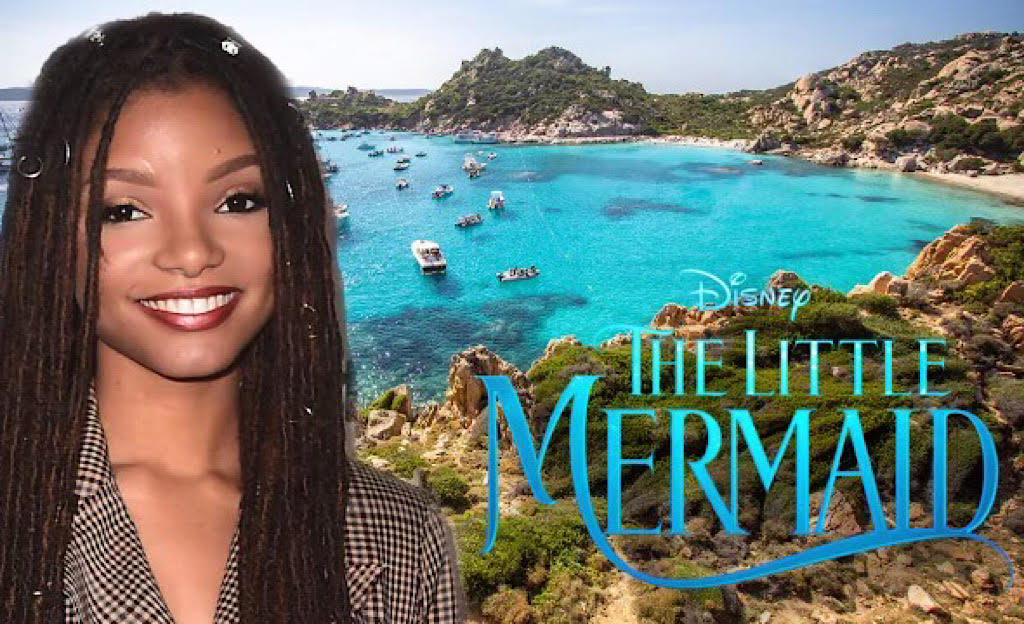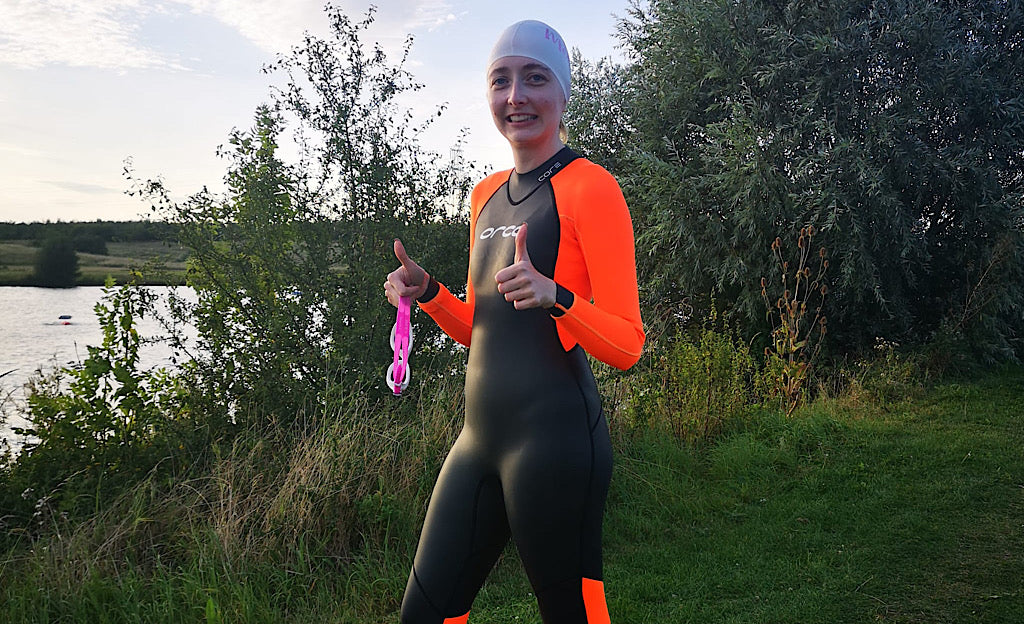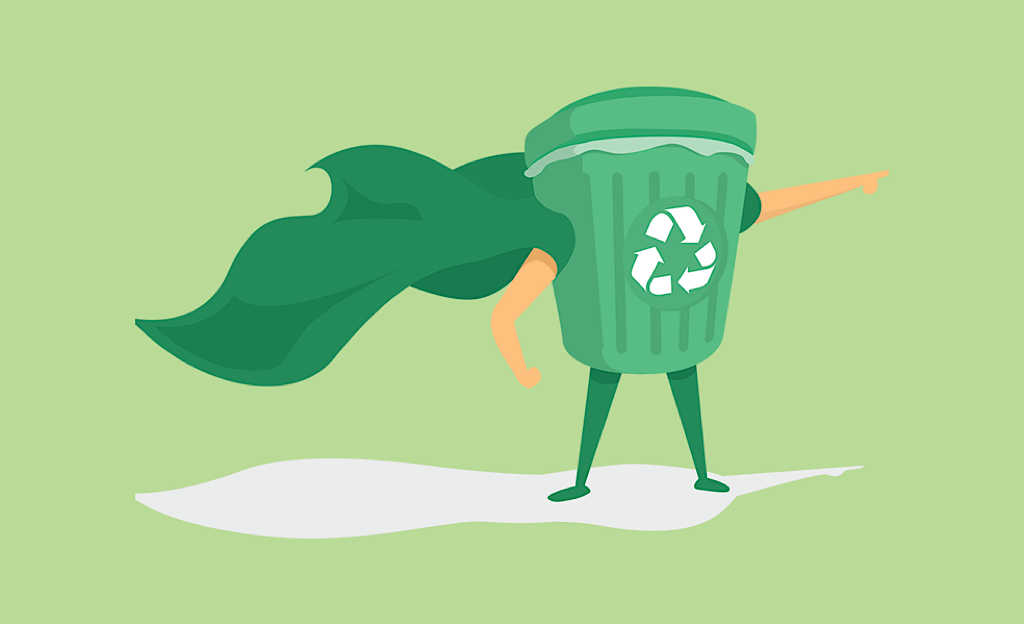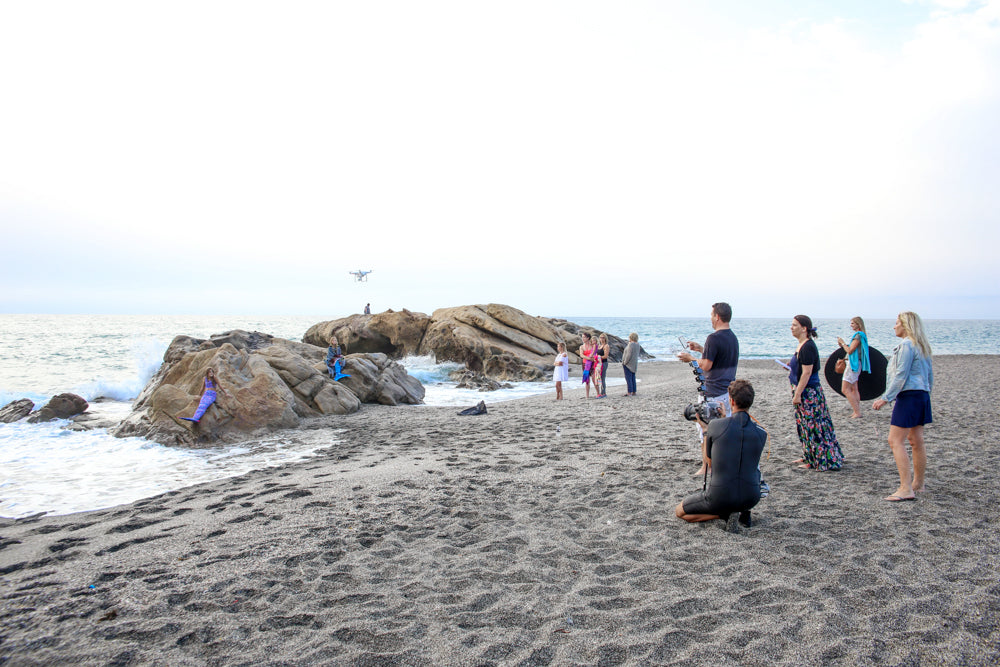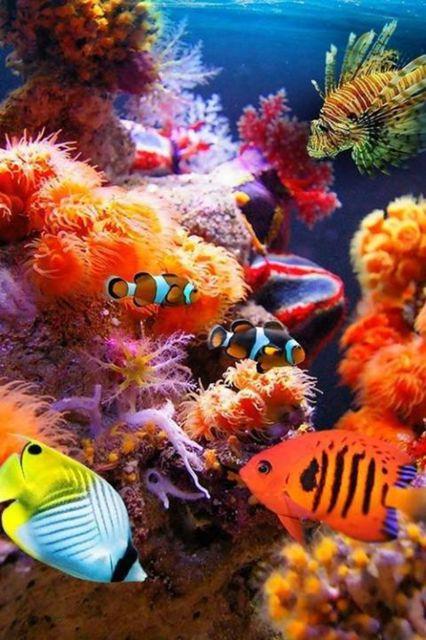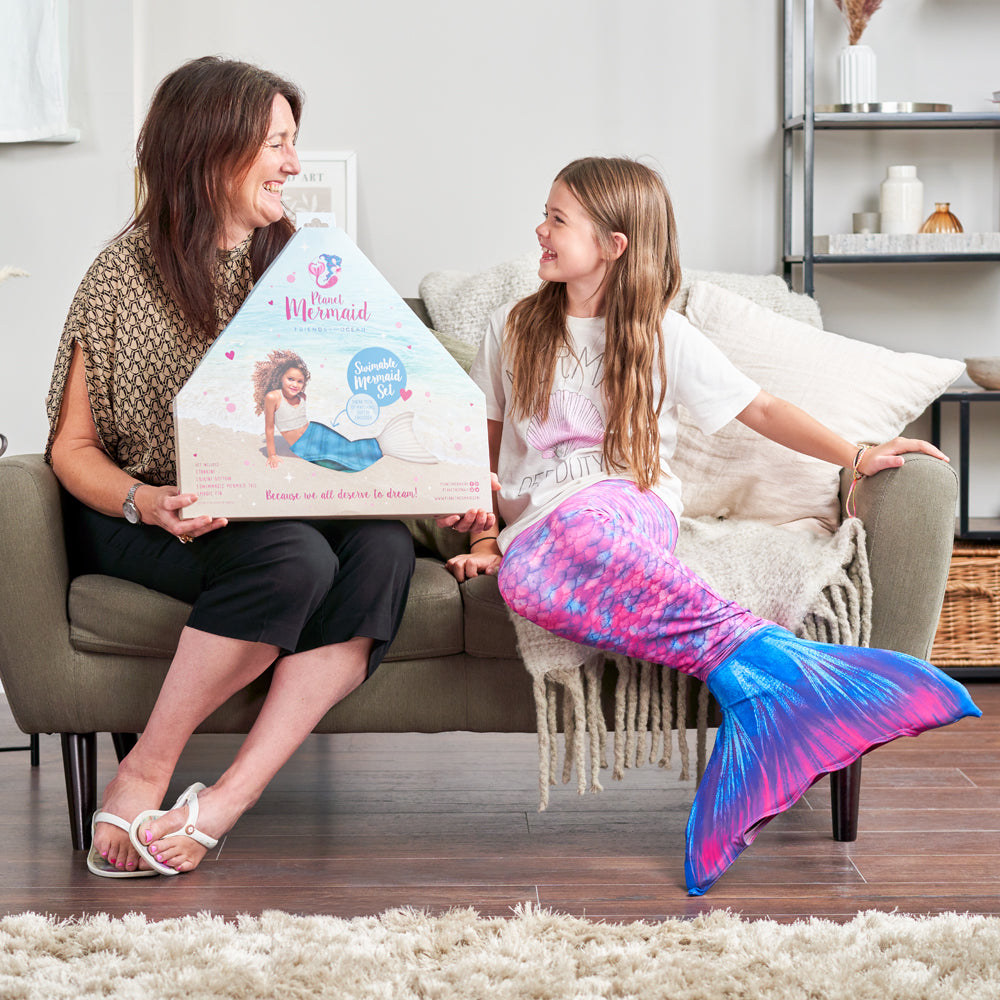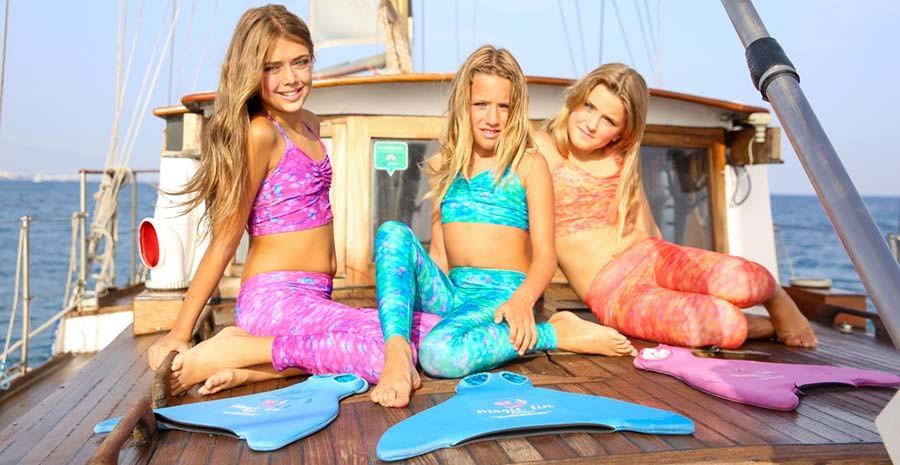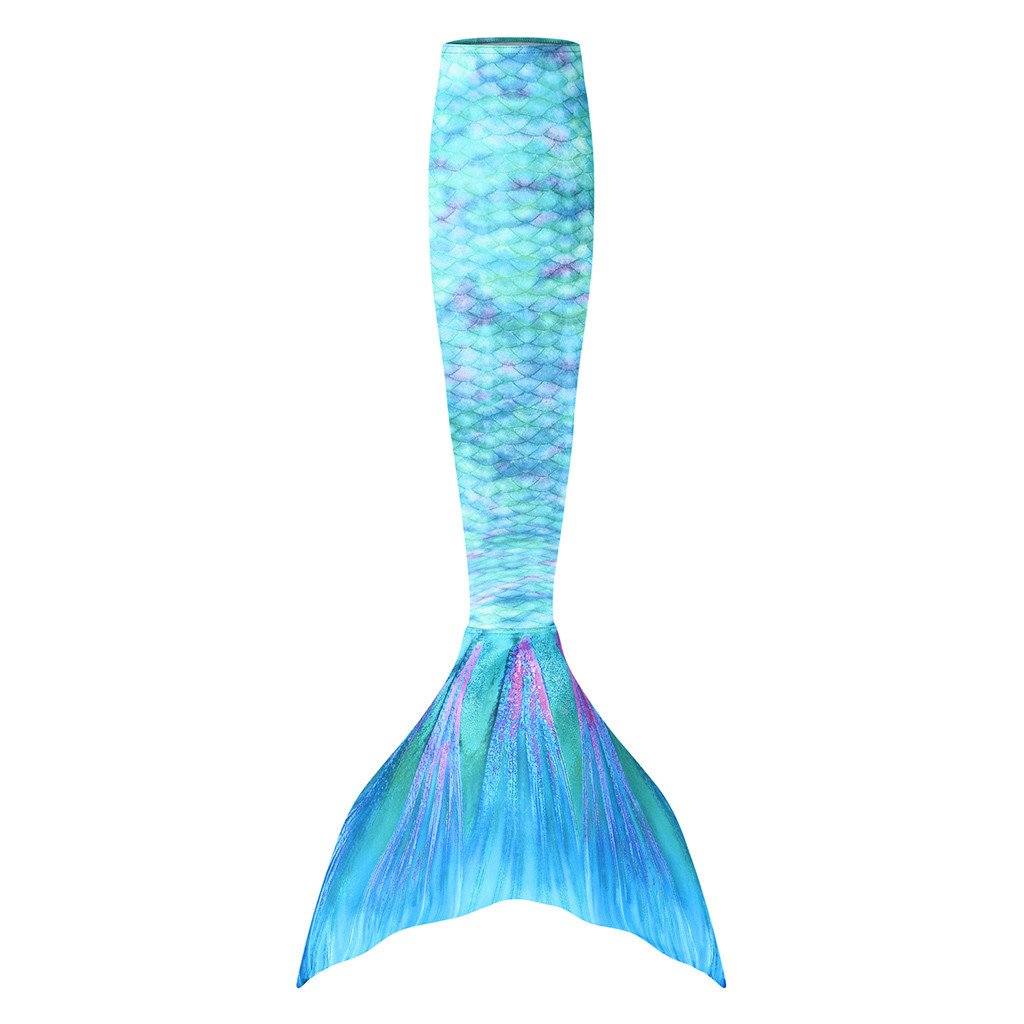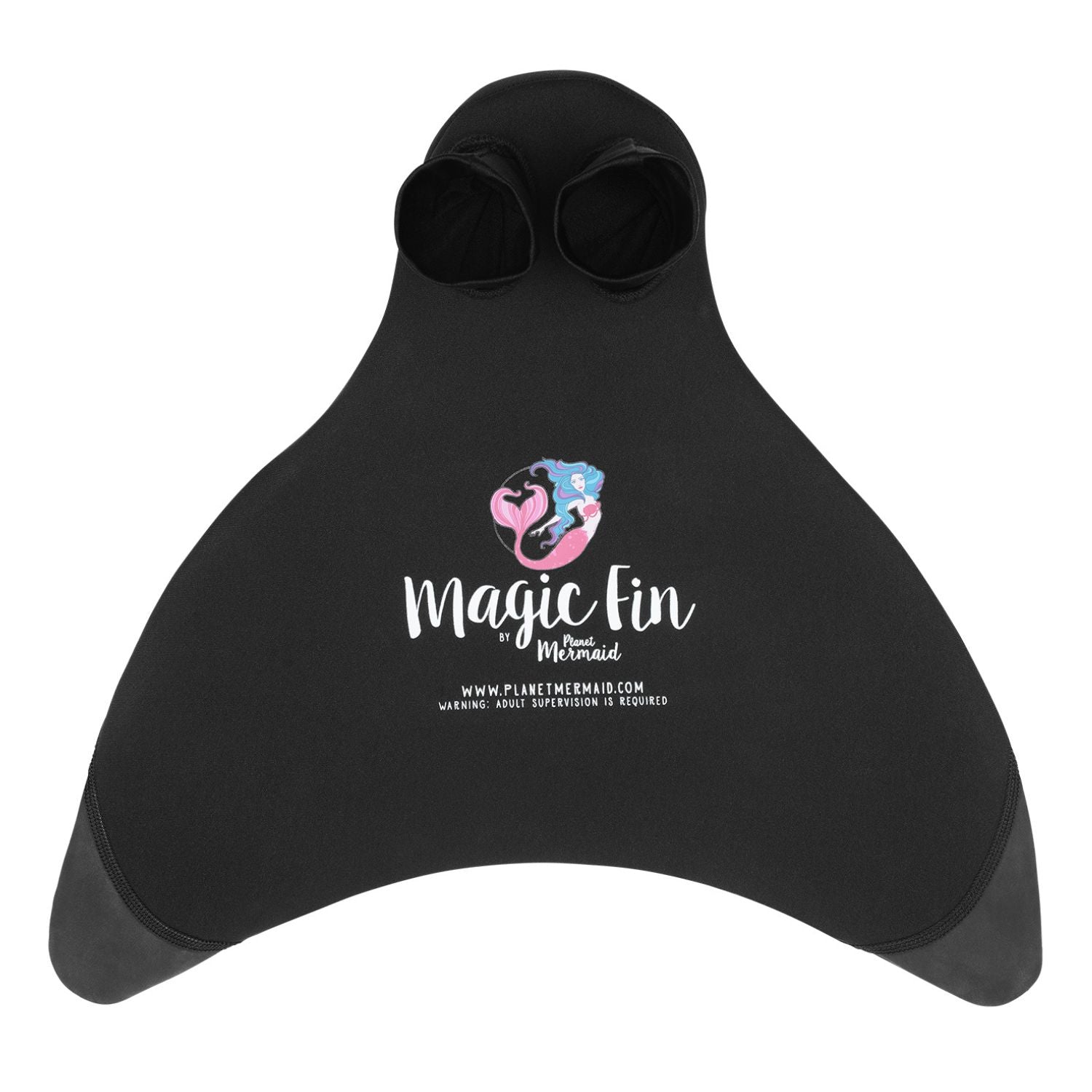Planet Mermaid Blog
Planet Mermaid helps save the Whales and Dolphins!
Planet Mermaid is very proud to have one of its own mermaid team member’s sign up to the “Swim Serpentine” event to raise valuable funds for WDC, Whale and Dolphin Conservation, the leading global charity dedicated to the protection of whales, dolphins and porpoises. The Swim Serpentine event is a one day open water swimming event held on Saturday 18th September at the beautiful Serpentine in Hyde Park, London, home of the Serpentine Swimming Club. Hyde Park swimming is open to everyone at the Serpentine Lido and is an amazing venue to do wild water swimming. Mermaid Ophelie who took no hesitation in signing up comments: “When I was given the opportunity to participate in this event, I said yes straight away without knowing too much about the details. I am always up for doing new and exciting things that challenge me and allow me to work towards a specific goal, all whilst raising money for a great cause. I had recently seen articles about an annual tradition in the Faroe Islands in Denmark where a festival involves the needless killing of hundreds of dolphins and whales, these images have continued to be my inspiration and motivation for doing the swim. Whales, dolphins and all sea creatures are a Mermaid's best friend and they need to be saved, they all deserve a chance to live. When I started training, I was barely able to swim 500m, and this was with lots of breaks! I can now swim 1600m with minimal breaks and longer sets, with each session I try and push myself to swim longer and further. I have loved swimming and being in the water, both in pools and outside in the fresh and most of the time very chilly water. My hair never looks nice, I always seem to have water in my ears and can’t get rid of the smell of chlorine, but it is completely worth it! I'm so excited for the event on the 18th September and can’t wait to swim alongside everyone else participating, I'm sure I won’t be the only mermaid there” Planet Mermaids founder Maggie goes on to say: “We at Planet Mermaid are super proud of Mermaid Ophelie for her endurance, strength and courage to improve her health and stamina whilst doing her part to help save whales, dolphins and porpoises; we are behind her at every stage of this exciting journey” Mermaid Ophelie is openwater swimming in her wetsuit and neoprene swim cap but has said if she raises enough for WDC she may think about using her mermaid tail or even enter other open water swim races in 2021! Mermaid Ophelie has been training extremely hard for this and if all goes well may look to do the North Channel Swim as her next challenge!! Ophelie has already smashed her £300 target which is simply amazing, lets help her get to her ultimate goal of £700, simply click on the link to go straight to her just giving page of you would like to donate to this worthy cause - https://bit.ly/3ySjHyb If Mermaid Ophelie has inspired you to try openwater swimming and you are thinking about where you can find “open water swimming near me” just google and locations will come up near you. Mermaid Ophelie chose to train at Box End, Kempston in Bedfordshire, near Planet Mermaids HQ. Planet Mermaid will be cheering Mermaid Ophelie on during her swim the 18th September so keep an eye on our social media for live updates! Go Mermaid Ophelie you truly are an inspiration and the whales, dolphins and porpoises will be so proud of you!
Plastic Free July
History Plastic Free July is an international movement designed to educate millions of people to reduce their plastic waste. The inspiration behind it is that even if one person makes just one small change collectively it will make a massive difference to the world we live in. Source: Google It is so inspiring that it has captured over 250 million participants in over 177 countries! Shocking Ocean Plastic Statistics: The visibility of plastic waste pollution is increasing because of its accumulation in recent decades and unlike organic waste, plastic can take hundreds to thousands of years to decompose in nature. Source: Google The shocking statistics highlighted below show just how severe this problem is getting: More than 1 million seabirds and 100,000 marine animals die from plastic pollution every year. 100% of baby sea turtles have plastic in their stomachs. There is now 25 trillionmacro and micro pieces of plastic in our ocean & 46,000 pieces in every square mile of ocean, weighing up to 269,000 tonnes. Every day around 8 million pieces of plastic makes their way into our oceans. The world produces 381 million tonnes in plastic waste yearly – this is set to double by 2034. Over 2 million tonnes of plastic packaging are used in the UK each year. 88% of the sea's surface is polluted by plastic waste. Between 8 to 14 million tonnes enters our ocean every year. Britain contributes an estimated 7 million tonnes of plastic annually. Plastic packaging is the biggest culprit, resulting in 80 million tonnes of waste yearly from the US alone. On UK beaches there are 5000 pieces of plastic & 150 plastic bottles for each mile. More than 1 million plastic bags end up in rubbish bins every minute. The world uses over 500 billion plastic bags a year – that’s 150 for each person on Earth. 3 billion plastic straws pollute the world’s beaches, but only 1% of straws end up as waste in the ocean. By 2020 the number of plastics in the sea will be higher than the number of fish. 1 in 3 fish caught for human consumption contains plastic. Source: https://bit.ly/3gtPgWi Source: Google What can we do about it? – Take the Challenge! Visit https://bit.ly/3gqgqgG to sign up to “plastic free July” and enjoy reading stories from other participants and receive the latest plastic-free ideas and tips to help you reduce your own plastic intake and in turn help save the environment. Beach Clean Ups One fantastic activity very close to Planet Mermaids heart is a beach clean-up! With the summer holidays soon upon us the desire to visit the beach is ever more luring! Why not make a difference and organise a local clean up or even just spend an hour or so during your trip picking up rubbish that has been washed to shore or left by fellow holiday makers. You never know if people see you doing such an amazing thing they may offer to help! Source: Google Take lots of photos and share them on social media and use the @plasticfreejuly handle along with @PlanetMermaid to promote your amazing work. Visit www.planetmermaid.com to view our latest in amazing fabric mermaid tails for kids and adults, woman’s mermaid monofins, siren tails, mermaid leggings, mermaid tops, mermaid swimsuits, mermaid gifts and a whole lot more! Mermaid love to you all Keep safe! @plasticfreejuly
Global Recycling Day – 18th March 2020
Today is “Global Recycling Day” a day to highlight the importance of recycling and make us think about what we throw away. The last 100 years has seen a rise in temperatures seeing the hottest days recorded. The climate is now facing an emergency and if we do not each make changes to our way of living we will see a continued rise in global temperatures leading to melting icecaps, deforestation, fires and pollution. Source: globalrecyclingday.com Something very close to Planet Mermaids heart is the harm pollution is doing to our oceans. The invention of plastic plagues the land we live on, it is not only overwhelming landfills because it does not decay; it is also filling our oceans with harmful debris killing marine life. It is estimated that more than 817 animal species are affected by ocean pollution, an increase of 23% in the last five years alone! Source: Google Oceans are the biggest water bodies on our planet however in the last few decades’ surplus human activity have severely affected marine life. “Marine pollution is spreading harmful substances such as oil, plastic and other waste into our oceans. Source: Google Below are some disturbing facts that really put into perspective the problems our oceans are experiencing right now: The North Pacific Ocean is the most polluted of the World’s oceans – it holds 2 trillion pieces of plastic, representing one third of the total plastic found in our oceans! Plastics are the most common element found in the ocean today According to a recent study 18 billion pounds of plastic trash ends up in our oceans each year. That is enough to cover every foot of coastline around the world with 5 filled rubbish bags of plastic! The five most common items found in coastal clean-ups were plastic cigarette butts, food wrappers, plastic beverage bottles, plastic bottle caps and plastic straws There are 25 trillion pieces of plastic debris in the ocean, of that 269,000 tonnes float to the surface Plastic causes more than 80% of the negative effects on animals associated with ocean trash Ocean pollution kills more than one million sea birds each year Approximately every square mile of ocean has more than 45,000 pieces of plastic floating on it Over 100,000 marine animals die each year from plastic It is estimated by 2050 there will be more plastic in the ocean than fish! Source:rubiconglobal.com It is not too late we can still turn this problem around but it needs everyone on board to do their bit to help the environment. Source: Google To get us stated why not start to follow the ten simple steps below to help make a difference and save our amazing oceans: Conserve water Reduce pollutants Reduce waste – recycle what you can Shop wisely Reduce vehicle pollution – walk more/do lift shares/take public transport Use less energy Fish responsibly Use reusable plastic products Respect our habitat Volunteer to help clean beaches, help with injured sea animals, raise money for worthy charities Source: oceanservice.noaa.gov Oceans provide a home to a wide variety of marine animals and plants and it is the responsibility of each and every one of us to play our parts to help make these oceans clean again so our important marine species…and mermaids can thrive for decades to come! Remember even the smallest of changes really can make a difference! If you would like to volunteer with beach clean ups please visit www.nationaltrust.org/lists/pitch-in-with-a-beach-clean and you will be given information on events held around the country and how you can sign up to help. Source: Google We would love to hear from you if you have already done or going to do your bit to help our amazing oceans. All you need to do is tell us your stories on our social media platforms so we can share with fellow mermaid lovers alike! @PlanetMermaid #planetmermaid @mermaidwave #mermaiwave Visit www.planetmermaid.com to view our latest in amazing fabric mermaid tails for kids and adults, woman’s mermaid monofins, siren tails and a whole lot more! Keep mermaiding and sharking
World Photo Day – 19th August 2019
On Monday 19th August photography lovers of all ages around the world will be celebrating the annual World Photo Day. Its prime focus is to inspire the positive changes that have been made around the world. It is a way of connecting people and at the same time raise awareness through the art of photography. History behind this day World Photo Day was created in 2009 by an Australian photographer named Korske Ara and the 19th was chosen as it was the date the patent of the Daguerreotype (an early method of photography) was bought by the French government. This day also coincides with the World Humanitarian Day, Growth from modest beginnings A whopping 500 million people are now signed up since its foundation in 2010 where just 250 people registered. This is a fantastic platform for photographers to share images on their passion and raise awareness of what is going on around them. Passion for all things Oceans and Marine Conservation World photo day is a fantastic opportunity to renew our appreciation for our planets oceans and marine life that lives below the magical waters and raise awareness about the breathtaking diversity that marine life brings. The ocean is just one of those amazing places which oozes fantastic sea life species and with nearly 200,000 already identified species with millions yet to be accounted for the ocean needs much needed recognition and exposure to get the recognition it deserves.It is a very sad fact that as much as 40% of the ocean is now heavily affected by the most significant and direct threat of over exploitation of marine species as well as other threats such as pollution, loss of coastal habitats and climate change and being part of World Photo Day it gives the opportunity to bring these issues to the forefront to such a large audience. Amazing Ocean and Marine Life Photo Examples To find out more and to sign up please visit www.worldphotoday.com. Why not start your photographic journey by getting some mermaid training in at Mermaid Wave Swim School – www.mermaidwave.com. There are centres all around the UK where you will be able to learn to swim like a mermaid in preparation for your magical journey photographing the wonders of the sea. Call us on 01234 352488 to find out more or to book your space. If you already have been lucky enough to capture the wonders of the sea through your own camber lens we would love to see and share with our fellow mermaid lovers. All you need to do is upload onto our us social media platforms. @PlanetMermaid #planetmermaid @mermaidwave #mermaiwave Keep Mermaiding and sharking!
Planet Mermaid Supports “Friends of the Ocean”
Planet Mermaid is committed to saving the ocean and wants to make similar minded folk aware just how important it is to us and primarily what we can do to help save it from ultimate destruction. The ocean is the largest ecosystem on our Earth and it is fundamentally our planets life support system. Living oceans absorb carbon dioxide from the atmosphere and reduce climate change impacts. It is vital to the interest of humankind. To put it bluntly our oceans can exist without us but we as humans cannot exist without them and ironically it is us humans that are destroying this amazing eco system. Did you know that in the UK no one lives more than 70 miles away from the coast! Primarily the biggest problems facing our oceans are human numbers, carbon-dioxide driven warming and acidification, overfishing and plastics. What can we do to help! Mind Your Carbon Footprint and Reduce Energy Consumption Reduce the effects of climate change on the ocean by leaving the car at home when you can and being conscious of your energy use at home and work. A few things you can do to get started today: Switch to compact fluorescent light bulbs, take the stairs and huddle up or use a fan to avoid oversetting your thermostat. Make Safe, Sustainable Seafood Choices Global fish populations are rapidly being depleted due to demand, loss of habitat and unsustainable fishing practices. When shopping or dining out, help reduce the demand for overexploited species by choosing seafood that is both healthful and sustainable. Use Fewer Plastic Products Plastics that end up as ocean debris contribute to habitat destruction and entangle and kill tens of thousands of marine animals each year. To limit your impact carry a reusable water bottle, store food in non-disposable containers, bring your own reusable bag when shopping and recycle whenever possible. Every year, around 8 million metric tons of plastic waste enters the ocean, where it can prove fatal to marine life. Help Take Care of the Beach Whether you enjoy diving, surfing or relaxing on the beach always clean up after yourself. Explore and appreciate the ocean without interfering with wildlife or removing rocks and coral. Go even further by encouraging others to respect the marine environment or by participating in local beach clean-ups. Don't Purchase Items That Exploit Marine Life Certain products contribute to the harming of fragile coral reefs and marine populations. Avoid purchasing items such as coral jewellery, tortoiseshell hair accessories and shark products. Be an Ocean-Friendly Pet Owner Read pet food labels and consider seafood sustainability when choosing a diet for your pet. Never flush cat litter which can contain pathogens harmful to marine life. Avoid stocking your aquarium with wild-caught saltwater fish and never release any aquarium fish into the ocean or other bodies of water, a practice that can introduce non-native species harmful to the existing ecosystem. Support Organizations Working to Protect the Ocean Many institutes and organisations are fighting to protect ocean habitats and marine wildlife. Find a national organisation and consider giving financial support or volunteering for hands-on work. If you live near the coast join up with a local branch or group and get involved in projects close to home. Travel the Ocean Responsibly Practice responsible boating, kayaking, and other recreational activities on the water. Never throw anything overboard, and be aware of marine life in the waters around you. Educate Yourself about Oceans and Marine Life All life on Earth is connected to the ocean and its inhabitants. The more you learn about the issues facing this vital system, the more you’ll want to help ensure its health—then share that knowledge to educate and inspire others. Source: https://www.nationalgeographic.com/environment/oceans/take-action/10-things-you-can-do-to-save-the-ocean/ There are a number of conservation organisations who are dedicated to protecting our ocean conservation, below are just a few: Oceana - a non-profit organisation seeking to make our oceans more biodiverse https://oceana.org/ The Ocean Conservancy – a non-profit organisation working to see that the oceans most extraordinary places are preserved for future generations to use and enjoy https://oceanconservancy.org/ Sea Shephard Conservation Society – aims to end destruction of habitat and slaughter of wildlife in the world’s oceans https://seashepherd.org/ Coral Reef Alliance – working with people around the world protecting the most valuable and threatened eco-system https://coral.org/ Coral Restoration Foundation – restores our coral reefs and educates others on the importance of our oceans https://www.coralrestoration.org/about Ocean Care –committed to marine wildlife protection www.oceancare.org Marine Conservation Society - their scientists, campaigners, volunteers, advocates, data experts, fundraisers, divers and researchers are all passionate about creating a sustainable future www.mcsuk.org Remember even the smallest of changes really can make a difference! We would love to hear from you if you have already done or going to do your bit to help our amazing oceans. All you need to do is tell us your stories on our social media platforms so we can share with fellow mermaid lovers alike! @PlanetMermaid #planetmermaid @mermaidwave #mermaiwave Keep Mermaiding!
World Wildlife Day- Life below water
This month has seen the celebration of the annual World Wildlife Day. There are so many amazing animals on our planet that need the recognition they deserve and this year’s theme “Life below water” is a topic very close to Planet Mermaid’s heart.This is a time to renew our appreciation for our planets oceans and marine life that lives below the magical waters and raise awareness about the breathtaking diversity that marine life brings.Did you know that…. Our ocean cover more than 70% of the earth’s surface Less than 5% of the planets oceans have been explored Over 70 per cent of our planet’s oxygen is produced by the ocean The Pacific Ocean is the world’s largest ocean and contains around 25,000 islands Around 50 per cent of the US lies beneath the ocean It’s possible to find rivers and lakes beneath the ocean We still only know a fraction of the marine species in our oceans There are more historic artefacts under the sea than in all of the world’s museums The world’s longest mountain chain is underwater The majority of life on Earth is aquatic The ocean is just one of those amazing places which oozes fantastic sea life species and with nearly 200,000 already identified species with millions yet to be accounted for the ocean needs much needed recognition and exposure to get the remaining unidentified species accounted for. Below is just a very small selection of these almost alien like creatures that live their lives deep within our oceans. Feather Star – these creatures wave their feathers to get around the waterGlaucus Atlanticus - aka. the “blue dragon” is a type of stinging sea slug! Leafy Sea Dragon – it is actually a type of fish! It is a very sad fact that as much as 40% of the ocean is now heavily affected by the most significant and direct threat of over exploitation of marine species as well as other threats such as pollution, loss of coastal habitats and climate change.The Sea Life Trust is just one charity whose vision is to have a world where oceans are healthy, properly protected and full of diverse life. Through global campaigns and projects they champion the need for plastic free oceans, sustainable fishing, effective marine protected areas and an end to over-exploitation of marine life.It is time for us ocean lovers to show our support and help preserve these precious creatures that live below our oceans in an amazing underwater world… Visit www.sealifetrust.org to find out more and see how you can help out this wonderful cause, You never know you may even come across a real life mermaid in your quest!Please send us your ideas for support and ways you have helped during World Wildlife Day on our social media platforms, we would love to see them and share with fellow mermaid lovers! @PlanetMermaid #planetmermaid#WorldWildlifeDay, #LifeBelowWater, #PeopleAndPlanet, #WWD2018, #DoOneThingToday, #MarineSpecies Visit www.planetmermaid.com to view our latest in amazing mermaid and shark tails for kids and adults alike! Keep mermaiding and sharking!

